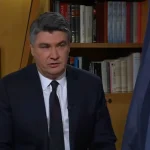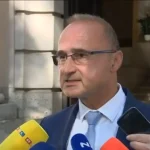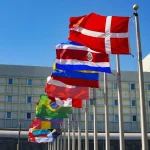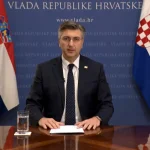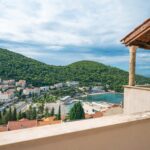ZAGREB, Dec 19, 2020 – Croatian diplomats have mixed feelings about 2020, which began with the ambitious EU presidency becoming virtual due to the pandemic, but by the end conditions had been met for waiving U.S. visas, the two most important foreign ministers visited, and an exclusive economic zone was declared in the Adriatic.
Croatia spent a large part of 2019 preparing for taking over the rotating six-month EU presidency six and a half years after joining and at the start of the Ursula von der Leyen-led European Commission.
The presidency began dynamically, with Prime Minister Andrej Plenkovic going to Paris for consultations with French President Emmanuel Macron. Two days later, the new European Council President, Charles Michel, arrived in Zagreb, followed by the entire Commission for a meeting in the refurbished National University Library.
At the beginning of the year, the EU’s agenda included negotiations on the next seven-year budget and an agreement on future relations with the UK. Croatia had announced that during its presidency it wanted to restore the focus on the European perspective of the Western Balkans, the culmination of which would be the Zagreb Summit, an informal meeting of the EU and the membership candidates.
A total of 161 events were to have taken place in Croatia, two thirds of them in Zagreb, but only a few were eventually held before the European lockdown.
Croatia’s motto for its EU presidency was “A Strong Europe in a World of Challenges”, which turned out to be prophetic as in January news started arriving from China about a new pneumonia, a virus that would soon infect the whole world.
The focus of the EU and its Croatian presidency soon shifted to the fight against the novel coronavirus, which arrived in Europe in February.
Croatia’s political leadership said later that the presidency did not go as planned but that everything that could be, was accomplished in those circumstances.
EU enlargement
Croatia achieved one of the priorities of its presidency in March, when EU accession negotiations were opened with North Macedonia and Albania after a compromise was reached with the countries which had objected to it.
The Zagreb Summit, taking place 20 years after the first one which opened Croatia’s European perspective, was held via video link due to the pandemic.
EU member states confirmed in the Zagreb Declaration their clear support for the European perspective of Western Balkan states, but some politicians were disappointed after the summit because the final statement made no mention of EU enlargement.
“I would be happier if we were stronger and clearer, all of us,” Plenkovic said then.
The Croatian EU presidency was also marked by a magnitude 5.5 earthquake which struck Zagreb in March, but it ended with another success, the opening of the last chapter in the accession negotiations with Montenegro.
A month later, Croatia entered the European Exchange Rate Mechanism, a key step towards entering the euro area.
Exclusive economic zone
At the end of the year, Croatia decided to declare an exclusive economic zone in the Adriatic, 17 years after declaring the compromised-baed Ecological and Fisheries Protection Zone.
During a visit by Italian Foreign Minister Luigi Di Maio, his Croatian counterpart Gordan Grlic Radman said the two countries would declare their exclusive economic zones together.
Pompeo and Lavrov
After several years, Croatia was visited by the U.S. and Russian foreign ministers.
U.S. Secretary of State Mike Pompeo confirmed in Dubrovnik in October that Croats would soon be able to travel to the U.S. without visas. He also said that a decision on the purchase of fighter jets was Croatia’s sovereign decision and, lobbying against Huawei, called on Zagreb not to give strategic projects to the Chinese.
Several weeks later, U.S. Ambassador Robert Kohorst said that officially less than 3% of Croatia’s visa applications were rejected, a key requirement for visa-free travel.
Russian Foreign Minister Sergey Lavrov arrived in Zagreb after two postponed visits. He said that Russia had good relations with Croatia despite the EU’s unwillingness to have good relations with Russia.
New president
This year Croatia also has a new president. Zoran Milanovic defeated then president Kolinda Grabar-Kitarovic in a runoff, taking office in mid-February and becoming co-creator of the foreign policy.
“The wars are over”, he said at a modest inauguration which, for the first time, did not take place in St. Mark’s Square. Milanovic announced that he would cooperate with everyone on the foreign policy front.
He chose Slovenia for his first official visit and has also visited Austria, Montenegro and Germany. He also made a private visit to Albania over which he quarreled with the prime minister.

